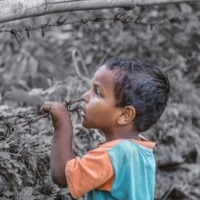Deadline: 2-May-23
FEMISE is pleased to announce a “Call for Papers” ahead of its 2023 Annual Conference 27-28-29 September 2023 in Barcelona, Spain: Shifting Paradigms: Opportunities for a Deeper Eu-Mediterranean Integration In A Changing World.
Researchers working on socioeconomic issues in the Euro-Mediterranean are invited to submit their papers in the framework of the 2023 FEMISE Annual Conference, a unique opportunity to receive feedback on their work, engage in fruitful discussions, and network with peers and practitioners. Selected authors will have their travel and accommodation expenses covered to present their work during the conference and will receive a remuneration of 800€ upon delivery of the expected outputs. This call for papers is launched in collaboration and with the support of the European Institute of the Mediterranean (IEMed), host and co-organiser of the annual conference.
Theme Of The Call For Papers
This Call for Papers is open to all researchers working on socioeconomic issues with a focus on the EuroMediterranean region*. Freshly graduate PhDs and young researchers are particularly encouraged to apply. Successful papers should bring a real value added to the current state of the art, be evidence-based and be offering operational and realistic policy recommendations.
Papers submitted for consideration need to be aligned with the FEMISE 2023 Conference theme “Shifting Paradigms: Opportunities for a Deeper EU-Mediterranean Integration in a Changing World”. In this context, the four following topics are proposed.
However, researchers can address other issues within these topics.
Topic 1: A Better Integrated Euro-Mediterranean Region
- Levers of action to achieve the regional integration potential of EU-Mediterranean association agreements.
- From a narrative to a reality: the integration of South Mediterranean countries (SMCs) into Regional Value Chains (RVCs)
- Shifting energy sources: How to enhance regional energy integration in the Mediterranean?
- Regional financial integration as a way to enhance SMCs financial markets? The missing links: improving infrastructure and connectivity for greater regional integration.
- Human mobility: tackling shortage of labour and brain drain through regional integration. Regional integration in research and higher education: spillovers for the benefit of the youth, society and the economy
Topic 2: Neighbours Of Neighbours: Potentials For An Eu-Med-African Relations
- How can SMCs benefit from the African Continental Free Trade Area (AfCFTA) in the context of the reconfiguration of the regional value chains? Opportunities and challenges.
- The Southern Mediterranean region as a bridge for the Europe-Africa economic cooperation
- The pillars of a Europe-Mediterranean-African triangular economic cooperation.
- What potential for collaboration with the African continent in enhancing entrepreneurship in SMCs, particularily in green and digital sectors.
- Can further openness to Africa boost EU-Med relations? Are there losers and winners?
Topic 3: Economics of The Euro-Mediterranean Green Transition
- Are SMCs on the right track towards their green transition? What challenges and what solutions?
- Identifying the right economic policies to spur the green transition in the Mediterranean.
- How to envisage the Carbon Border Adjustment Mechanism (CBAM) and its impact on the SMCs’ economies: a brake or an accelerator of the transition?
- From survival to resilience: imagining the future economic policies that will ensure security and sustainability.
- What challenges in adopting a Water-Energy-Food Nexus?
- The economic challenges of climate change adaptation in the Mediterranean.
- How to best promote entrepreneurship in the energy /green sector? How to unlock finance for the green transition in SMCs.
- How to make the green transition just and fair in the Mediterranean region.
Topic 4: How to Enhance a Youth-Driven Euro-Mediterranean Region
- What economic policies can best empower the youth?
- Promoting innovation and entrepreneurship as a way to solve youth unemployment: application, benefits and limitations.
- Strategies to enhance youth financial inclusion.
- The youth at the centre of the digital transformation in the Mediterranean region.
Remuneration and Benefits for Authors
- Authors of selected papers (only one author per paper) will be invited to present their work at the FEMISE annual conference on 27-29 September in Barcelona, Spain. Their travel expenses and accommodation will be covered. Kindly note that coverage of the travel expenses is restricted to the geographic area covered by FEMISE (the EU-Med region, Turkey and the United Kingdom).
- In addition, each selected paper will receive a remuneration of Euros 800, provided that all of the outputs have been provided.
- Moreover, the evaluation / selection committee may select one or more papers for the “Best FEMISEIEMed Paper Award 2023”.
Geographic Coverage: Research submitted should be focusing on the EU-Med region. Research can cover the whole EU-Med region or a selected number of countries from the region particularly the South Med countries.
Evaluation and Selection Process
- Following the submission of the detailed concept note and CVs an evaluation and selection process (please see details below) will take place by the FEMISE Scientific and selection Committees, based on the following criteria:
- Relevance of the topic to the theme and topics of the conference and addressing issues of priorities for the EU-Med Region.
- Value added of the proposed topic to the existing knowledge.
- The quality of the methodology and its ability to address the issue efficiently.
- Inclusion of policy implications and recommendations that are operational and specific.
- Other criteria:
- Final selection may be subject to marginal adjustments to take into account regional, subjects and gender balances.
- Previously published papers or those already accepted for publication will not be accepted. All submitted drafts will go through a plagiarism-checking process.
- No single author may submit more than two papers, whether independently or jointly with others.
- Draft papers could be submitted in English or French.
- Collaboration between researchers (especially North and South) is strongly encouraged. Freshly graduate PhDs and young researchers are encouraged to apply.
- Submissions that are not consistent with the guidelines will be excluded.
For more information, visit FEMISE.









































